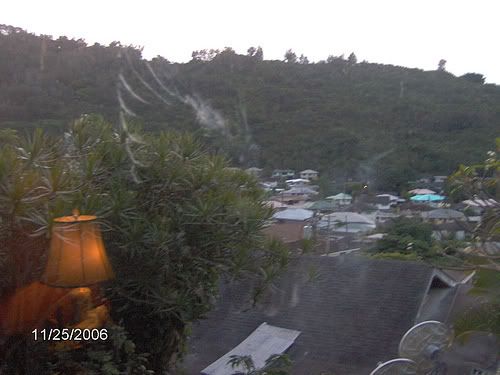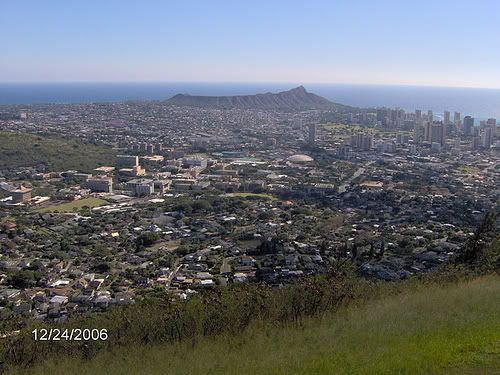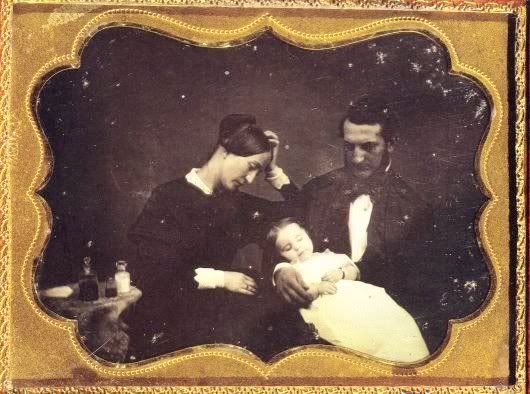
"A beautiful subject can be the object of rueful feelings, because it has aged or decayed or no longer exists. All photographs are memento mori. To take a photograph is to participate in another person's (or thing's) mortality, vulnerability, mutability. Precisely by slicing out this moment and freezing it, all photographs testify to time's relentless melt." - Susan Sontag, On Photography
The photograph I've placed above was taken by a woman who was on her last visit to her dying mother. In the same batch, she has posted the last photograph she took of her mother. Her mother is in a hospital bed, in the photo, with tubes - oxygen and something intravenous. She looks frail and tired (as one would). The woman notes, in her caption, that her mother was at an excellent nursing home, where she was pampered.
About a month later, after her mother had died, the woman returned to Honolulu with her brother. They climbed to the top of the highest hill in the city, where their parents wished to scattered, and took this photograph of the site:

I think there was a pretty significant paradigmatic shift that came with the popularization of photography. It seems to me that we know better how to negotiate our experiences through this medium.
I remember three things mainly about my grandfather's funeral: (1) it was surprising to see my father, my uncle Freddy (from the other side of the family), and Bob Cook standing together; (2) the room smelled musty and I was concerned that I would sneeze inappropriately; and (3) my grandfather's hands were harder than I'd expected and cold. I don't know if I would feel differently now about his hands if I had photographed him, but my impulse is to guess that I would, to guess that the thing would grant me aesthetic distance.

• • •
Later on the day of my grandfather's funeral we sat on my aunt's porch and Bob Cook gave my little cousin Robby things to throw into the chiminea - scraps of paper, receipts, a soda can, a hard boiled egg.
